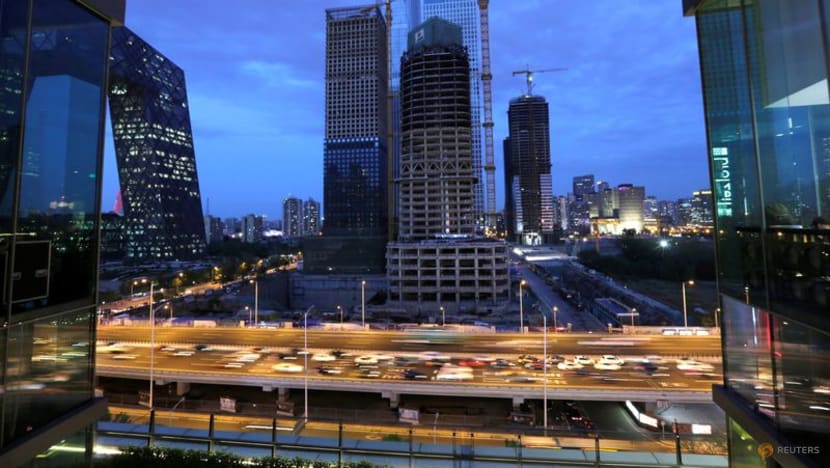Business
For many in China, the economy feels like it is in recession
Vehicles drive through Beijing's central business area, China April 23, 2018. REUTERS/Jason Lee/File Photo
Listen to this article
6 min
This audio is generated by an AI tool.
18 Jan 2024 07:07AM
BookmarkShare
SHANGHAI : The night before China's civil service exam, Melody Zhang anxiously paced up and down the corridor of her dormitory, rehearsing her answers. Only when she got back to her room did she realise she had been crying the whole time.
Zhang was hoping to start a career in state propaganda after more than 100 unsuccessful job applications in the media industry. With a record 2.6 million people going for 39,600 government jobs amid a youth unemployment crisis, she didn't get through.
ADVERTISEMENT
"We were born in the wrong era," said the 24-year-old graduate from China's top Renmin University.
"No one cares about their dreams and ambitions anymore in an economic downturn. The endless job-hunting is a torture."
A crisis of confidence in the economy is deterring consumers from spending and businesses from hiring and investing, in what could become a self-feeding mechanism that erodes China's long-term economic potential.
China grew 5.2 per cent last year, more than most major economies. But for the unemployed graduates, the property owners who feel poorer as their flats are losing value, and the workers earning less than the year before, the world's second-largest economy feels like it's shrinking.
Zhu Tian, economics professor at China Europe International Business School in Shanghai, says the textbook definition of a recession - two consecutive quarters of economic contraction - should not apply to a developing country investing roughly 40 per cent of its output annually, twice the level of the United States
SCROLL TO CONTINUE WITH CONTENT
SCROLL TO CONTINUE WITH CONTENT
"We're in a recession," Zhu said. "If you talk to 10 people, seven will say we've had a bad year."
"I don't think the government can afford that. This cannot go on forever," he said, urging more stimulus measures to break out what could be a "vicious cycle" of low confidence that will affect young people entering the job market in particular.
VANISHING ASPIRATIONS
More than one in four of the roughly 100 million Chinese aged 16-24 were unemployed in June, the last data point before officials suspended the series. China resumed publication of the data on Wednesday, excluding college students from it, to put youth unemployment at 14.9 per cent in December.China's Generation Z is the most pessimistic of all age groups, surveys show.
Those who find jobs earn less than they expect as businesses cut costs in response to poor domestic demand. Recruiter Zhaopin found the average salary employers offered in China's 38 biggest cities fell by 1.3 per cent year-on-year in the fourth quarter.
For an economy which expanded roughly 60-fold in dollar terms since the 1980s, this is a historical shift in mood. That success was achieved largely through gigantic investments in manufacturing and infrastructure, but that model began producing more debt than growth about a decade ago, with total borrowing now reaching levels China struggles to service.
Meanwhile, China trained its students for high-skilled jobs in the services sector rather than factory or construction work. Subdued household consumption and regulatory crackdowns on the finance, tech and education industries have diminished their opportunities.
Janice Zhang, 34, had worked in the tech industry until late 2022 when she quit to handle a family emergency, confident she could easily find a new job given her experience and U.S. education.
But Zhang only found a social media marketing position, where she was expected to put in 15-hour shifts, so she quit after a short while.
The state of the economy makes her feel like a "grain of sand on the beach," unable to control her own destiny, she said.

